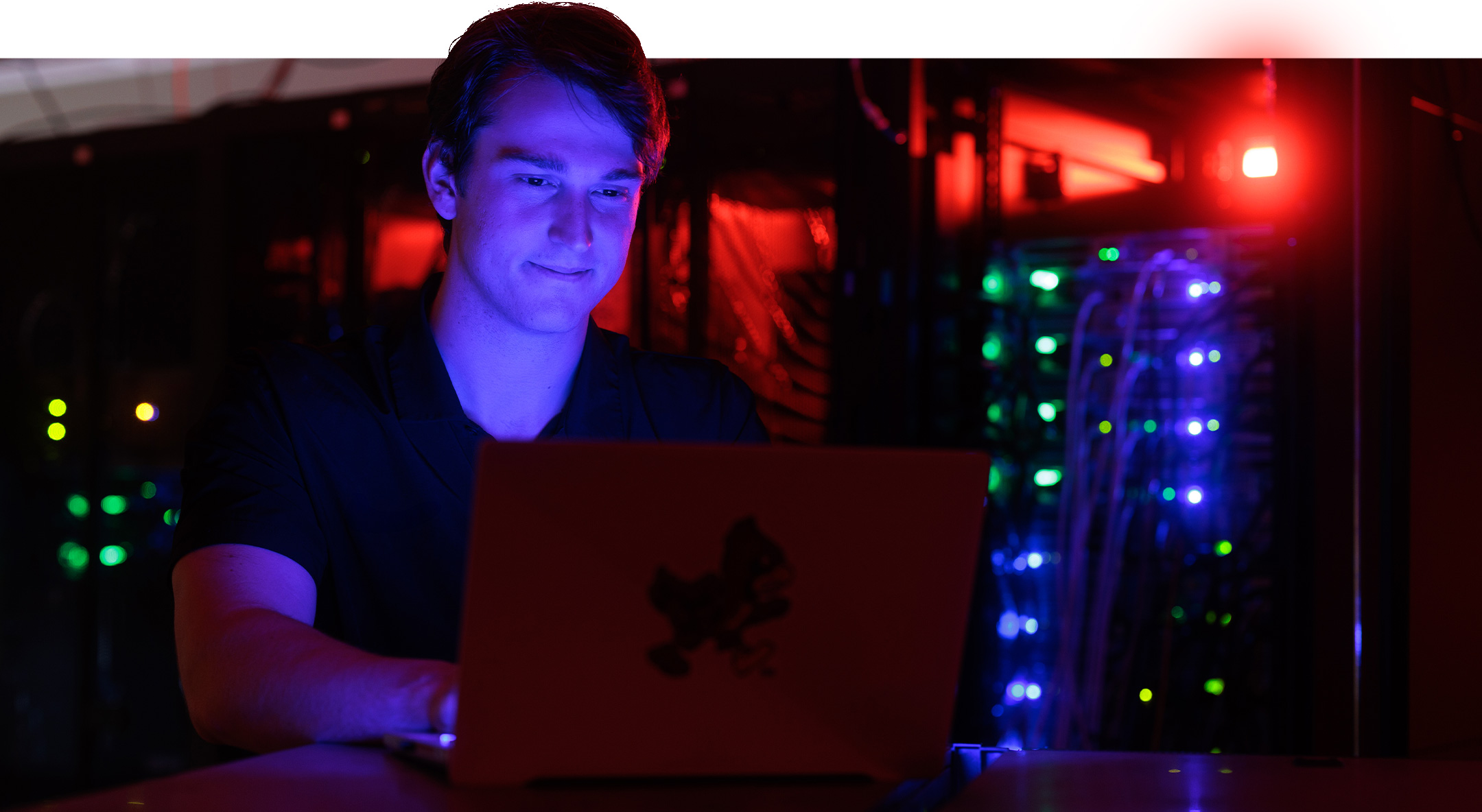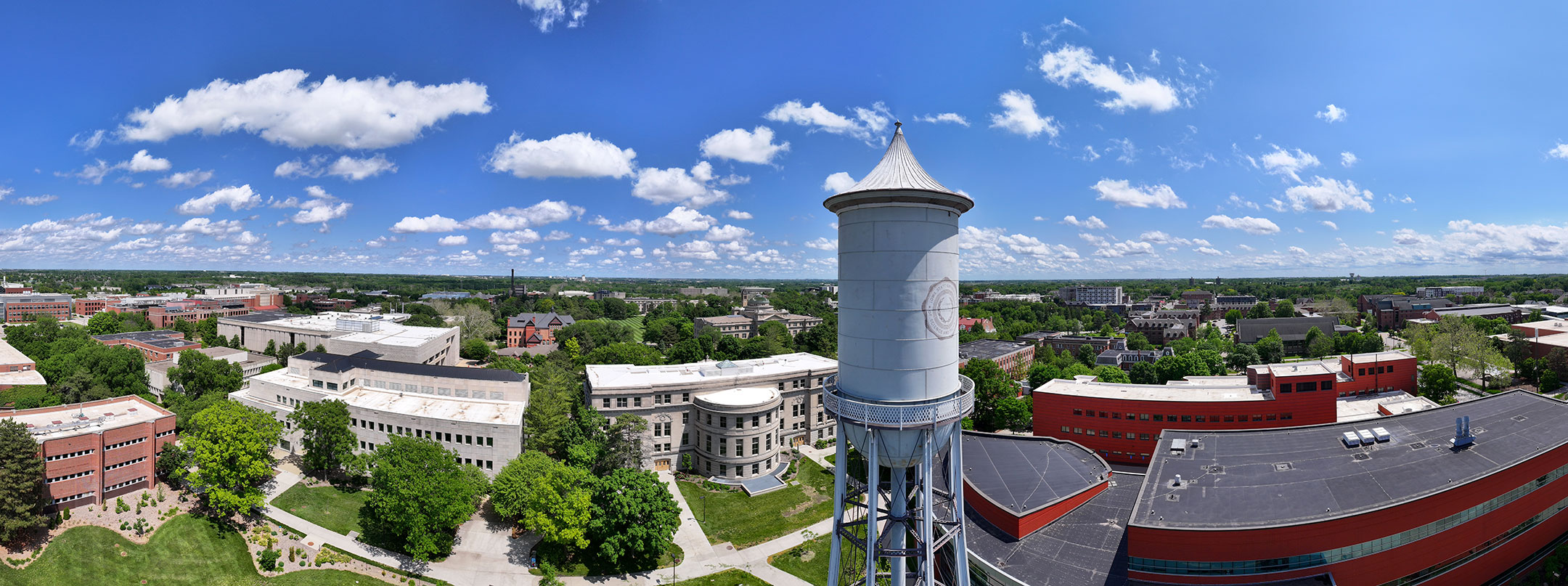Cyber Security Engineering

A Cyber Security Engineer
in the Making
In today’s digital age, almost everything happens in cyberspace, from phones to airplanes, healthcare to battlefields, social media to schools and the workplace. Our cyber security engineering graduates are innovative thinkers that help protect data and networking systems from hackers and other potential threats.
-
97%
employed or continuing education within six months of graduation
-
$87,000
average starting annual salary
-
$22/hr
average earnings for internships and co-ops
A competitive advantage
Iowa State Engineers get hired. And we’re here to help connect you to internships and full-time jobs.
- 1,400 employers recruit engineering students each year
- One-on-one career advising
- Networking opportunities
Community and Support
College is more than just academics. Join the community and you’ll find friends, new perspectives and experiences—and support.
- Learning communities
- Clubs and student organizations
- Support resources and groups



So… what’s the difference?
Iowa State offers four computing-related engineering majors:
Computer, Cyber Security, Electrical and Software

To engineer like a Cyclone Engineer means to embrace challenges with resilience and creativity, use knowledge to make a positive impact, and always strive for excellence in both technical and ethical dimensions of engineering.
Kai Heng Gan, cyber security engineering
What can I study?
Cyber security engineers play a critical role in all aspects of cyber security, from protecting data to securing networks and systems from adversaries, thus enabling safer cities, societies and economies. Cyber security engineers must always be ahead of the curve, designing the newest protections against emerging and foreseeable future cyber threats. Cyber security engineers:
- Design the next generation of cyber security protection mechanisms
- Protect critical services such as hospitals, power grids and water treatment plants
- Prevent and solve cyber crimes
- Develop solutions to ensure safety and privacy of people online
- Protect global information systems and physical networks
For the 2025-26 academic year, our cyber security engineering students preferred these minors:
Cyber Security Engineering at Iowa State
We train our students in the fundamentals of cyber security, as well as other aspects of computers, networks and software systems. Our faculty and students are involved in world-class research in different aspects of cyber security, such as hardware security, data security or application security.
Consider these career area options:
- Cyber operations: Use your skills to defend data, networks, people and infrastructure against attackers.
- Penetration (Pen) testing: Help secure organizations by testing the security vulnerabilities of their physical and information infrastructure.
- Security design: Work on the newest technologies to make the internet safer, or help organizations design products that are secure.
- Digital forensics: Develop technologies to detect tampering of information that is being communicated and stored.
The Future is What We Do!
Cyber security engineers play a critical role in all aspects of cyber security, from protecting data to securing networks and systems from adversaries, thus enabling safer cities, societies and economies. Cyber security engineers must always be ahead of the curve, designing the newest protections against emerging and foreseeable future cyber threats.
Each year, Iowa State awards millions of dollars in scholarships to students. Learn more about scholarship opportunities for:
More information about cost of attendance and other types of aid is available from the Office of Student Financial Aid.
Orientation is for students who have accepted admission to Iowa State and plan to enroll in an upcoming term. During orientation you will be provided the opportunity to:
- meet with an academic advisor
- register for classes
- obtain your ISU card
- become familiar with the campus
- increase knowledge of important policies and procedures
The basic program for engineering majors is a set of courses common to all engineering curricula. Students normally enroll in the majority of the basic program courses during their first year.
Learn more about new student orientation and the first-year engineering program.
- 8,225 engineering students (fall 2024), the largest college on the Iowa State campus, with the support of 500+ engineering faculty and staff dedicated to teaching, research and student achievement.
- 75% of Iowa State engineering students graduate with engineering work experience. Internships and co-ops, learning communities, study abroad, 90+ engineering organizations give the hands-on experience to help shape student success.
- Our bachelor of science degree programs are accredited by the Engineering Accreditation Commission of ABET.
- More college facts and highlights
What courses should I be taking in high school to prepare for an engineering degree?
Many high school students have access to college-level courses in high school. We know it’s in your nature to maximize your opportunities.
Learn more about what’s required, what’s recommended and what will transfer
What kind of a laptop computer will I need?
Iowa State University students are required to own or obtain a laptop computer appropriate to your discipline and program of study.
College of Engineering laptop computer recommendations
Can I study abroad?
Engineering International Programs can help you find study or work abroad experiences suited to your interests and goals. Expert staff can assist with course enrollment and transfers to keep you on track for graduation.
Learn more about Engineering International Programs
Are there ways to get practical work experience while at Iowa State?
Participation in a co-op or internship is a great way to gain real-world work experience. Students are employed by industry and government organizations in positions related to their major field of study. Unlike a typical part-time or summer job, an engineering co-op or internship must Involve the Practice of Engineering, and students must be paid. Co-ops and internships are not required by the college, but they are highly encouraged.
Learn more about Internships and Co-ops
There are also opportunities for students to work alongside professors doing research in areas related to their major field of study.
Learn more about Undergraduate Research Opportunities
Engineering Recruitment and Student Services
1300 Marston Hall, 533 Morrill Road, Ames, IA 50011
Phone: (515) 294-7186
Office Hours: Monday-Friday, 8 a.m.-5 p.m.

